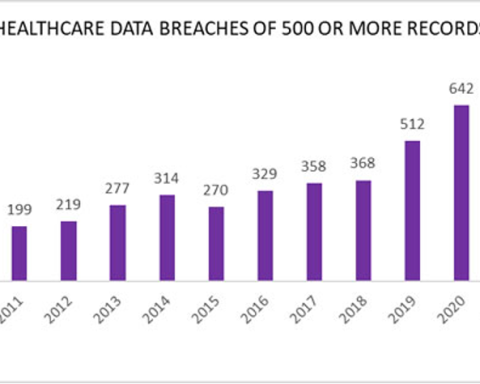The integration of artificial intelligence (AI) tools across medical communications is proving to be a transformative development, ushering in increased efficiencies and innovation across the healthcare industry.
by Matt Lewis, Global Chief Artificial and Augmented Intelligence Officer at Inizio Medical, an Inizio company
A subset of AI, augmented intelligence, refers to the synergy between AI, machine learning, and natural language processing (NLP) technologies to complement human intelligence. In the realm of healthcare, augmented intelligence holds immense promise, helping to enhance decision-making and problem-solving processes.
But when it comes to applying augmented intelligence to medical communications, there are limitations and challenges that must be overcome.
In this piece, Matt Lewis shares his expertise on how to overcome these issues and harness AI tools for better patient outcomes.
The value of AI in medical communications
AI has the transformative potential to streamline various aspects of medical communications and help healthcare providers (HCPs) provide better quality care to patients.
Notably, NLP tools such as ChatGPT are making a significant impact, helping to streamline the vast amount of medical information HCPs receive and transform it into accessible medical content. Referred to as ‘intelligent literature monitoring,’ these AI-enabled solutions help reduce the time-consuming and labor-intensive endeavor of sourcing, reviewing, and summarizing relevant medical literature.
This frees up individuals from what can often be a painstaking task of sifting through copious amounts of information. It also helps to mitigate the risk of overlooking critical insights or failing to effectively target the intended audience with the findings.
Such tools also have the capacity to turn these insights into accessible plain language content, removing jargon and facilitating better patient understanding and engagement with treatment.
The importance of human intelligence
While the benefits of AI in medical communications are evident, these technologies have inherent biases and are being trained by information from users around the world — not all of which is accurate.
Therefore, human experts remain necessary for overseeing generated content, understanding and incorporating context, ensuring the accuracy of data, verifying the quality of outputs, and importantly, upholding scientific and ethical standards at every stage.
By combining the power of AI with the expertise of humans, medical communications can harness an augmented intelligence approach to help maximize the impact of their medical communications. This impact could be used to help improve clinical trials, streamline diagnosis and treatment, enhance patient engagement materials, speed up key decision-making, and ultimately improve patient outcomes.
Ethics and scientific accuracy
Since the widespread adoption of AI tools like ChatGPT, there has been controversy surrounding the ethical and quality considerations of the publications they generate.
This has shed light on the limitations of AI in meeting the authorship criteria established by organizations such as the International Committee of Medical Journal Editors (ICMJE). Guidance published in July 2023 outlines new recommendations by the committee on the use of AI, stating that authors must declare if and how AI has been used to prepare their publications, that AI cannot be listed as an author, and that human authors must pay close attention to any AI outputs to prevent the risk of incomplete or biased results.
The American Medical Association (AMA) Code of Medical Ethics also lays out guidance for AI use, emphasizing the need to continuously monitor tools and practices used to deliver care. The guidance states that AI outputs must use the “highest-quality data and be independently validated in relevantly similar populations of patients and care settings”.
Ultimately, while AI can assist in content generation it cannot replace the intellectual and expert insights of real human authors. It is up to these authors to design experiments, interpret their results, and draw conclusions — all while ensuring they meet rigorous quality and scientific standards.
NLP and the problem of complex concepts
One of the most significant challenges AI faces in medical communications is its ability to handle complex scientific concepts and terminology. While NLP tools are adept at generating plain language content, they may fall short when it comes to translating complex trial designs, results, and adverse event data into accurate, patient-friendly language.
There are many intricacies involved in medical research, with nuances in patient data, terminologies, and multifaceted statistical analyses that pose obstacles that NLP tools may struggle to effectively navigate.
As a result, human experts must remain vigilant about the outputs and interpretations of AI content, taking care to ensure the accurate interpretation of complex information that can go on to impact HCPs and patients alike.
Ushering in the Fifth Industrial Revolution
Standing at the precipice of a transformative era, the synergy between human intelligence and technological innovation holds huge promise for the future of medical communications.
Similar to the invention of the steam engine or printing press, AI tools are welcoming the fifth industrial revolution — streamlining the dissemination of information, enhancing diagnostic accuracy, improving clinical trial design, and ultimately transforming patient care.
While ethical and scientific standards must be upheld, the benefits of AI cannot be overlooked. Using AI-driven insights and augmented intelligence, the pharmaceutical industry can significantly amplify the impact of human ingenuity and pave the way for a more connected, informed, and compassionate future of medical communications.
Learn more about doctor answering service companies in the US.






